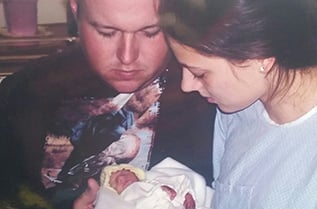BTD sequencing is a molecular test used to identify variants in the gene associated with Biotinidase deficiency.
2 weeks
81404
$1,000
Biotinidase deficiency is an inborn error of metabolism caused by the deficiency of the enzyme biotinidase. Infants with biotinidase deficiency appear normal at birth. However, if untreated, affected infants can develop symptoms including hypotonia, ataxia, seizures, developmental delay, vision and hearing loss and cutaneous problems (eg. alopecia, dermatitis, eczema). Those diagnosed at birth should remain asymptomatic if treatment is initiated early and maintained.
Molecular testing is useful to confirm the diagnosis and to identify the disease causing mutations within a family to allow for carrier testing and prenatal diagnosis.
Sanger Sequencing
Sequencing of BTD will detect a mutation in 95% of individuals with biotinidase deficiency.
The preferred sample type is 3-5 ml of peripheral blood collected in an EDTA (purple top) tube. Extracted DNA, dried blood spots, and saliva are also accepted for this test. Saliva samples must be submitted in an approved saliva kit. Contact the lab to receive a saliva kit or to have one sent to your patient.
The specimen should be kept at room temperature and delivered via overnight shipping. If shipment is delayed by one or two days, the specimen should be refrigerated and shipped at room temperature. Do not freeze the specimen. Samples collected on Friday can be safely designated for Monday delivery.
Prenatal diagnosis is available if the familial mutations are known. Additional fees for cell culture and maternal cell contamination may apply. Maternal cell contamination studies are required for all prenatal molecular tests. Contact the laboratory prior to sending a prenatal specimen.
Call our laboratory at 1-800-473-9411 or contact one of our Laboratory Genetic Counselors for assistance.
Robin Fletcher, MS, CGC
Falecia Thomas, MS, CGC
Alex Finley, MS, CGC
